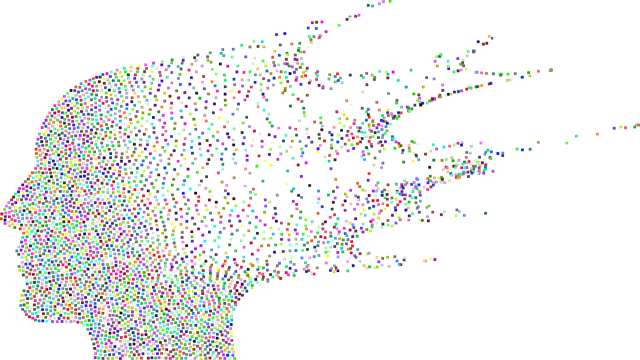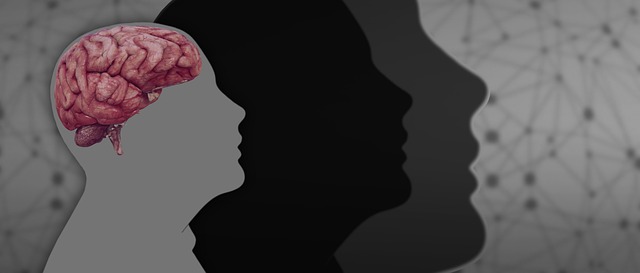Mental health diagnosis in Greenwood Village Cancer Issues Therapy faces challenges due to individual emotional complexities, with misdiagnosis and delayed discovery common. Organizations like Stress Management Workshops counter these issues through multi-faceted strategies, focusing on risk management for healthcare providers and burnout prevention. Technology aids accurate diagnoses, especially crucial in Greenwood Village for specialized cancer therapy. Advanced training equips mental health professionals with latest research and tools to identify subtle symptoms. A patient-centric approach emphasizes open communication, individualized tracking via Mental Wellness Journaling, and community education to improve diagnosis accuracy. Greenwood Village Cancer Issues Therapy's holistic Mind Over Matter strategy includes public awareness campaigns and educational initiatives for comprehensive care.
Mental illness diagnosis accuracy is a critical aspect of patient care, and continuous improvement efforts are essential. This article explores various strategies aimed at enhancing diagnostic precision, focusing on understanding common challenges, leveraging technology, and training healthcare professionals. We delve into patient-centric approaches that prioritize individual needs and present a case study of Greenwood Village Cancer Issues Therapy, highlighting successful improvement initiatives. By examining these comprehensive efforts, we can advance mental health diagnosis practices.
- Understanding Mental Health Diagnosis Challenges
- The Role of Technology in Enhancing Accuracy
- Training and Education for Healthcare Professionals
- Patient-Centric Approaches to Diagnosis
- Greenwood Village Cancer Issues Therapy: A Case Study in Improvement
Understanding Mental Health Diagnosis Challenges

Mental health diagnosis comes with its fair share of challenges, especially in a complex landscape like Greenwood Village Cancer Issues Therapy. The intricate nature of human emotions and behaviors often leads to misdiagnoses or delayed discoveries. This is further complicated by the fact that mental illnesses can present differently across individuals, making it difficult for professionals to apply one-size-fits-all approaches. For instance, what may be indicative of depression in one person could be a normal response to stress in another.
Addressing these challenges requires a multi-faceted approach. Organizations like Stress Management Workshops aim to equip mental health professionals with tools for accurate assessment and diagnosis by focusing on risk management planning. Additionally, burnout prevention strategies for healthcare providers are essential as they help maintain the focus, empathy, and objectivity needed for effective therapy. Such initiatives not only enhance the quality of care but also contribute to a more holistic understanding of mental health issues in Greenwood Village Cancer Issues Therapy.
The Role of Technology in Enhancing Accuracy

In the pursuit of enhancing mental illness diagnosis accuracy, technology emerges as a powerful ally. Advanced tools and applications are revolutionizing the way professionals assess and diagnose mental health conditions. For instance, digital platforms equipped with artificial intelligence algorithms can analyze vast amounts of data, including patient history, symptoms, and behavioral patterns, to provide more precise evaluations. This technological enhancement is particularly beneficial in areas like Greenwood Village, where access to specialized therapy and support services for cancer issues and trauma is vital.
By integrating technology into mental health care, professionals gain access to real-time information and evidence-based resources that improve diagnostic processes. Crisis intervention guidance can be readily accessible, enabling healthcare providers to offer more tailored and effective treatment plans. Moreover, digital tools can facilitate ongoing monitoring of mental wellness, allowing for early identification of potential issues and ensuring prompt interventions. This not only improves overall diagnosis accuracy but also contributes to better patient outcomes in communities like Greenwood Village.
Training and Education for Healthcare Professionals

Mental health professionals’ training and education play a pivotal role in enhancing diagnosis accuracy. Institutions like Greenwood Village Cancer Issues Therapy are at the forefront of this initiative, offering specialized programs tailored to address the nuances of mental illness assessment. These educational efforts focus on providing practitioners with the latest research, evidence-based practices, and advanced diagnostic tools. By participating in ongoing workshops and seminars, healthcare professionals can improve their risk assessment skills, thereby identifying subtle symptoms that may be overlooked. This comprehensive training also covers effective communication strategies to foster trust and encourage patients to share intimate details, which is crucial for accurate diagnoses.
Moreover, integrating inner strength development into the curriculum empowers mental health professionals to manage their own well-being while caring for others. Effective risk management planning, including personal self-care practices and professional supervision, ensures they remain adept at handling complex cases. This holistic approach not only benefits individual practitioners but also contributes to improved patient outcomes by ensuring consistent and accurate mental illness diagnosis and treatment.
Patient-Centric Approaches to Diagnosis

In recent years, a patient-centric approach to mental illness diagnosis has emerged as a promising strategy for enhancing accuracy and improving overall patient care. This method places the individual at the heart of the process, recognizing that each person’s experience with mental health is unique. By encouraging open communication and active participation from patients, healthcare providers can gain valuable insights into their symptoms, thoughts, and feelings. For instance, tools like Mental Wellness Journaling Exercise Guidance can help patients track their moods, identify triggers, and share their experiences, enabling therapists in Greenwood Village to make more nuanced diagnoses.
This patient-focused perspective also incorporates Mental Health Awareness initiatives that educate both individuals and communities about the signs and symptoms of various mental illnesses. By fostering a culture where discussing mental health is normalized, people may be more inclined to seek help early on, potentially preventing more severe issues like Depression. Such proactive measures, combined with effective therapy models, can significantly improve diagnosis accuracy and contribute to better outcomes for those navigating cancer issues and other mental health challenges in Greenwood Village.
Greenwood Village Cancer Issues Therapy: A Case Study in Improvement

In recent years, the Greenwood Village Cancer Issues Therapy (GVCIT) has emerged as a pioneering effort to enhance mental illness diagnosis accuracy. By focusing on the intersection of cancer support and psychological wellness, GVCIT has implemented innovative strategies such as integrating Mind Over Matter principles into treatment plans. These principles empower individuals to cultivate resilience and maintain emotional equilibrium during challenging times, significantly contributing to more accurate diagnoses.
Moreover, GVCIT has recognized the critical role of public awareness campaigns in the development of a supportive community. Through educational initiatives targeting both patients and healthcare professionals, they’ve fostered an environment where burnout prevention is prioritized. This holistic approach not only improves diagnosis accuracy but also ensures that individuals receive comprehensive care tailored to their mental health needs.
Mental illness diagnosis accuracy has seen significant advancements through technological innovations, enhanced training programs for healthcare professionals, and patient-centric approaches. The case study of Greenwood Village Cancer Issues Therapy demonstrates that a comprehensive strategy, combining advanced tools with human expertise and patient engagement, can lead to substantial improvements. As the field continues to evolve, addressing diagnostic challenges will remain a collaborative effort, ensuring better outcomes for those seeking mental health support.














